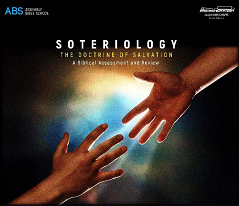|
|  |
 |
| Our History|Statement of Faith| |
|
|
 |
 |
|
NEW TESTAMENT CHURCH PRINCIPLES |
INTRODUCTION
- The local church of born again believers meet in the Name of the LORD JESUS CHRIST, who according to His promise, is in their midst (MATT 18:20).
- God's Word, the Bible is inerrant, the sole and only authority on all matters pertaining to doctrine, faith, conduct and assembly practices (II TIM 3:16), inspired by the Holy Spirit in its original autograph, and therefore free from error as the human instruments were sovereignly guided to express God's intent and instructions in the transmission of the text (II PET 1:19-21).
- The Bible is to be interpreted by the normal and plain sense in its meaning, by using the literal, grammatical-historical method of hermeneutics to ensure objectivity and consistency in the exegesis of the Biblical text to ascertain authoritative intent. This contrasts from the subjective allegorical, spiritualized and the eclectic reader-response methods.
- The Universal Church is based upon who JESUS CHRIST is (MATT 16:16-18). He is referred to as the Head of His Body, the church (COL 1:18).
"You are the Christ THE SON OF THE LIVING GOD".
- The local expression or local church founded by the Holy Spirit through the apostles is based on the APOSTLE'S DOCTRINE (ACTS 2:42) which circumscribes the LORD's Humanity, Death, Burial, Resurrection, Ascension, Exaltation, Return, Judgment and Eternal Reign; which in turn forms the foundation of moral, spiritual and personal conduct of all believers.
- The LORD did not leave it to them as to how they were to function as a local church.
- Through the HOLY SPIRIT they were given instructions and principles as to how His church or assembly should be cared for.
- These principles cannot change although it is agreed that methods of implementation may.
- What are some of these New Testament Principles as found in Scripture?
A. We believe that the nation of Israel in the Old Testament and the church in the New Testament are NOT one and the same.
- Israel, by God's grace (ROM 9:4-5), is made up of one nation to the exclusion of others and is governed by faith and obedience to God's Biblical covenants, laws and promises, tested by God's economic administration/dispensations/epochs through time; (ROM 9:4), whereas the church, by God's grace, is made up of every nation, tongue, tribe and people who have exercised faith and believed in the finished work of Christ and have become HIS disciples/followers, following the law of Christ. (cf. MATT 16:16-18 & v21)
B. In view of this, we believe that the church will not go through the tribulation but will be "caught up" (I THESS 4:16-17). This is the pre-tribulation premillennial view that we take.
C. We believe that there should be no denominational attachment but that we are all "one in Christ Jesus" (GAL 3:29).
- Denominational names originated from men (I COR 1:12- 13; 3:2-9)
- We refer to ourselves as "a gathering of believers" identified by its locality- e.g. the church at Corinth; church of Thessalonica; churches of Galatia, etc. (I COR 1:2; I THESS 1:1; GAL 1:2)
D. The government of the local church is administered by a plurality of elders with delegated authority from the RISEN LORD to exercise leadership. In the New Testament, elders are appointed by the Holy Spirit and not voted or elected by man into office (ACTS 20:28). They are also NOT self-appointed and there is no known one-man leadership (I THESS 5:12-13).
E. We believe that the government of the local church are elders and deacons; the elders looking after the spiritual aspects of the assembly, whereas the deacons are responsible for the administration of the assembly (ACTS 6:1- 4); both of which are appointed and not elected. It is not a title but an identification for functional purposes.
F. We believe in the plurality of eldership in the local church (TIT 1:5; ACTS 14:23).
G. We believe that elders are to consist of God appointed men that are Biblically qualified (ACTS 20:28; I TIM 3:1-7).
H. We do not recognize the artificial hierarchy of laity and clerisy (ACTS 6:1-4; PHIL 1:1).
I. We do not believe in appealing for financial aid from unbelievers for any projects by the church. Help must only be solicited from the believers themselves (ACTS 4:32-37).
J. We believe in the autonomy of each assembly managing their own administrative and financial matters. However, in matters of doctrine, we believe in the need for mutual consultation between assemblies since as members in the body of Christ, we are all to come to the unity of the faith and of the knowledge of the Son of God (EPH 4:11-14), being spiritually mature in Christ. This provides a Biblical balance between the application of autonomy and interdependence among local churches where the spirit of unity in doctrinal matters is also protected in Bible centered assemblies.
K. We believe in the reception of believers from another assembly either due to work transfer or residential movements, via letters of commendation from the assembly concerned (2 COR 3:1-3).
L. We believe that baptism is only for those who have accepted the LORD JESUS CHRIST as their own personal SAVIOUR and LORD and have decided to follow HIM and should be administered by immersion and not simply by sprinkling (ACTS 8:36-38; 16:33; ROM 6:3-11).
M. We believe in the weekly observance of the LORD'S SUPPER (ACTS 20:7) symbolized by the breaking of bread and the partaking of the cup till HE comes (I COR 11:23-26). We believe in the superintendence of the Holy Spirit in the church and the chairmanship of the Holy Spirit in the weekly LORD'S SUPPER.
N. We believe that the church is a living organism with each member having at least a gift given by the permanent indwelling HOLY SPIRIT for the purpose of equipping them for service and for edification of the church and that they are used for the common good (I COR 12:7, 11). We believe that under normal circumstances not all the gifts of the Holy Spirit are available today. Gifts foundational to the establishment of the church like apostles and prophets no longer exist. Consequently, gifts which are signs of the apostles like miracles have passed away with the apostles. Gifts which serve a revelatory purpose like prophecy, tongues and knowledge have since ceased with the completion of the New Testament canon (I COR 13:8-10). However, God may, in His sovereignty and wisdom, choose to effect miracles from time to time (I COR 13:8-10; I TIM 5:23; II TIM 4:20; PHIL 2:26-27).
O. We believe in the fellowship among believers of the local assembly; each one mutually linked so that member-care can be exercised towards one another and thus maintain unity within the church (EPH 4:1-3; 25-32).
P. We believe that all believers are regarded as holy and royal priests to worship and to witness; and each believer is to offer up spiritual sacrifices to GOD through the SON, the LORD JESUS CHRIST, the brothers audibly and the sisters inaudibly (I PET 2:5-9; I COR 14:34).
Q. We believe that sisters should submit to the headship of Christ in the local assembly by putting on a head-covering as taught in (I COR 11:3-16) whenever we come together as a church and that they must bow to the authority of Scripture that they are to remain silent and not permitted to speak when they gather thus (I COR 14:34; I TIM 2:11-12). However, in other spheres of service, women do play a vital role in the assembly (TIT 2:3-5).
R. We believe that missionaries must be commended by the assembly according to the calling of the LORD and that they must look to the LORD for their financial needs and that their sphere of service must be determined by the LORD and not by the worker himself or by the leaders of the assembly per se (ACTS 13:1-3)
|
|
Share on Facebook |
 |
 |
 |
Welcome to Jalan Imbi Chapel's (JIC) virtual home.
Over here you will get all the information you need to get acquainted with with who we are.
In this site you will be able to easily find our updated Sunday Sermons, Church News, List of Ministries and
many more useful tools for individual spiritual growth in Christ.
So we encourage you click and explore!!
|
 |
 |
|
 |
 |
|
|
|
|
 |
| This website is best viewed using Mozilla Firefox |
|

























